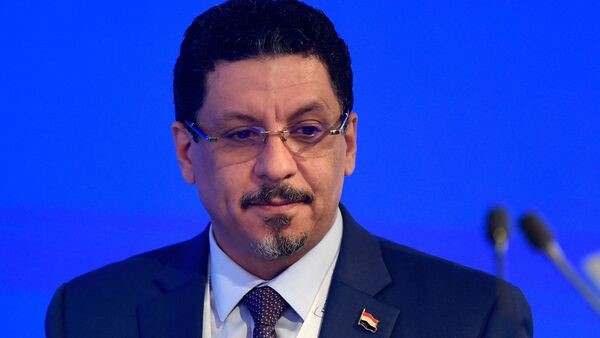Yemen has named Ahmed Awad bin Mubarak as its new Prime Minister, replacing Maeen Abdulmalik Saeed, who had held the position since 2018, reported news agency ANI, citing Al Jazeera.
Bin Mubarak’s appointment comes after the recent US airstrikes targeting assets associated with Iran-backed Houthi rebels. The Houthis have been disrupting Red Sea shipping operations by launching missiles and drones and conducting hijackings. In response, the US and UK conducted airstrikes on Houthi bases and command centres in January.
Ahmed Awad bin Mubarak, the newly appointed Prime Minister, previously served as Yemen’s ambassador to the United States. He is known for his staunch opposition to the Houthi rebels. In 2015, during a power struggle with then-President Abd-Rabbu Mansour Hadi, the Houthis abducted Bin Mubarak while he served as Yemen’s presidential chief of staff. Later, in 2018, he was appointed as Yemen’s representative to the United Nations.
The Houthis, aligned with Hamas in Gaza during the ongoing Israel-Hamas conflict, assert that their Red Sea attacks aim to deter Israel’s offensive in Gaza. The conflict intensified after Palestinian terrorists launched an attack on southern Israel on October 7, resulting in hundreds of civilian casualties and over 200 abductions.
Bin Mubarak’s appointment as Prime Minister underscores Yemen’s efforts to address internal and external challenges, particularly the Houthi insurgency and its impact on regional stability. The recent US airstrikes targeting Houthi assets reflect international concerns about the group’s destabilising activities, including attacks on maritime navigation routes and involvement in regional conflicts.
Bin Mubarak’s diplomatic experience, including his tenure as Yemen’s ambassador to the US and representative to the UN, positions him to navigate Yemen’s complex political landscape and engage with the international community to address the country’s pressing issues. His history of opposition to the Houthi rebels suggests a commitment to countering insurgencies and promoting national security.
The appointment of Bin Mubarak as Prime Minister marks a significant development in Yemen’s political trajectory, signalling a potential shift in leadership strategies and priorities. As Yemen grapples with internal divisions and external pressures, Bin Mubarak’s leadership will be closely watched for its ability to foster stability, promote dialogue, and advance Yemen’s interests on the regional and global stage.











More Stories
Mark Zuckerberg is now the second-richest person in the world, surpassing Jeff Bezos
KSI and the Sidemen are among the richest gamers in the UK
2024 Race: Who is Kamala Harris and What is Her Connection to India?